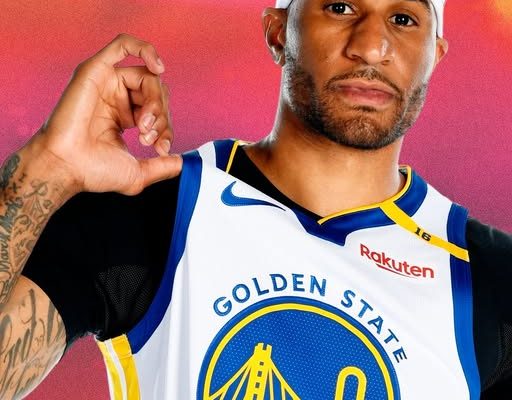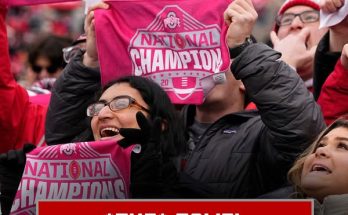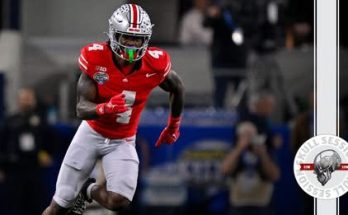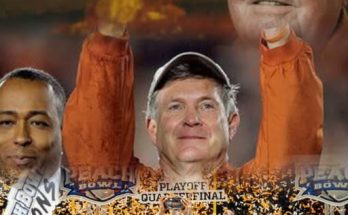Golden State’s decision to part ways with Gary Payton II marks more than just the exit of a respected role player—it’s a philosophical statement about where the franchise believes its competitive edge lies heading into the new season. For years, the Warriors’ dominance has been built on the delicate balance between dazzling offensive execution and a disruptive, switch-heavy defense anchored by high-IQ role players. Payton II embodied that second pillar. His on-ball pressure, lightning-quick hands, and relentless energy turned him into one of the league’s most feared perimeter defenders, despite his smaller frame. Yet, as the offseason unfolds, the Warriors have chosen to prioritize offensive firepower over defensive insurance, a shift that could reshape their identity for years to come.
Payton’s departure is not just a roster change—it’s the removal of a defensive chess piece who could change the tone of a game with a single possession. He was never the player who lit up the scoreboard, but in his minutes, Golden State’s defense often transformed from porous to airtight. His ability to guard multiple positions, anticipate passing lanes, and hound elite scorers allowed stars like Stephen Curry and Klay Thompson to conserve energy for their offensive responsibilities. He was the guy who made the “dirty plays” glamorous—diving for loose balls, taking charges, deflecting passes that led to transition threes. In a team stacked with offensive talent, he provided balance. And balance, in a league where margins are razor-thin, is often the deciding factor between good and great.
But in the wake of Golden State’s recent playoff exits, it’s clear the organization believes its championship window requires an offensive jolt. The addition of players who can stretch the floor, create shots off the dribble, and keep defenses guessing has taken priority. In part, this is a recognition that the Western Conference has grown offensively explosive—teams like Denver, Phoenix, and Oklahoma City are armed with relentless scoring weapons that force you to trade punches at a high clip. The Warriors’ front office appears to believe that the best counter to such firepower is not necessarily to smother it defensively but to overwhelm it with their own offensive depth.
From a strategic standpoint, this is not without precedent. In their dynasty years, Golden State’s offense was a tidal wave that could drown opponents before halftime. The difference, however, is that back then they also had the defensive anchors—Draymond Green in his prime, Andre Iguodala locking down wings, and Payton II in more recent seasons—to prevent teams from clawing back. Without Payton II, that balance tilts. Yes, the team will still boast Draymond’s leadership and Kevon Looney’s interior grit, but the loss of a perimeter stopper means the Warriors will have to ask more from aging stars and hope their offensive upgrades deliver nightly.
The risk here is multi-layered. While offense sells tickets and creates highlight reels, defense often wins the games that matter most. The NBA playoffs have repeatedly shown that elite defenses can stifle even the most potent scorers. Payton’s exit means that when the Warriors inevitably face teams with elite perimeter threats—think Luka Dončić, Anthony Edwards, or Devin Booker—they will have fewer specialized tools to throw at them. Relying solely on team defense and rotations without a point-of-attack disrupter could stretch the system thin, especially if injuries occur.
Another dimension to this shift is the chemistry and culture Payton II brought to the locker room. He was a fan favorite, a player whose journey from fringe roster hopeful to NBA champion resonated deeply with the Warriors’ faithful. His energy was infectious, his humility refreshing in a league of egos. For a team that thrives on trust and camaraderie, removing a glue guy like Payton II means that the intangible bonds will need to be rebuilt with new arrivals. That’s not impossible—Golden State’s core has been together long enough to integrate newcomers—but it does mean the front office is betting on pure talent over the subtle chemistry that role players like Payton II cultivate.
It’s worth noting that Golden State’s offensive prioritization isn’t happening in a vacuum. This offseason has been marked by a flurry of moves around the league that have reloaded contenders with scoring talent. The Lakers have doubled down on shot creation, the Clippers have stacked versatile wings, and even defensive-minded teams like the Celtics have made offensive upgrades. The Warriors’ brass may have calculated that staying competitive means matching those offensive arsenals rather than trying to out-defend them. After all, Stephen Curry remains one of the most dangerous scorers in the game, but as he enters the twilight of his prime, surrounding him with players who can lighten his offensive load is crucial.
From the perspective of roster construction, Payton’s absence will likely lead to a redistribution of defensive assignments. Andrew Wiggins, already tasked with guarding the opposition’s best wing, may now see more time against smaller guards, a shift that could impact his offensive rhythm. Moses Moody and Brandin Podziemski will have opportunities to earn more minutes, but expecting them to replicate Payton’s defensive impact immediately would be optimistic. Instead, the Warriors will need to adopt a more team-oriented defensive approach, with increased emphasis on help defense, rotations, and communication.
The financial side of the decision also cannot be ignored. In the luxury-tax-laden world of the Warriors, every roster move comes with financial implications. Paying for specialized role players like Payton II becomes harder to justify when the front office believes it can get more value from players who contribute on both ends, even if their defense is less elite. By reallocating resources toward versatile scorers, the team is banking on outpacing opponents rather than grinding them down.
However, the gamble here is not just about replacing Payton’s defensive metrics—it’s about replacing the tone he set. When Payton checked into games, opponents often had to adjust their offensive schemes on the fly. His presence forced turnovers, disrupted rhythm, and bought the Warriors crucial possessions. In close playoff games, those extra possessions can mean everything. The Warriors are essentially wagering that the offensive upgrades they’ve made will generate enough points to offset the possessions they will inevitably lose without his defensive presence.
For Steve Kerr, this new reality means adjusting his rotations and potentially tweaking his defensive schemes. Kerr has always preached that defense fuels offense, and in many ways, Payton II was the embodiment of that philosophy. Without him, Kerr may need to rely more on zone looks, hybrid defenses, and selective pressing to mask the team’s lack of a true perimeter hound. This could work in spurts, but over an 82-game season and into the playoffs, the absence of a consistent on-ball stopper will test Kerr’s adaptability.
From the players’ standpoint, the shift may spark a renewed sense of urgency. Knowing that the margin for defensive error is slimmer, veterans like Draymond and Curry may lean harder into leadership roles, demanding more discipline and buy-in from the entire roster. The new offensive weapons will need to integrate quickly, not just in terms of scoring but also in committing to the defensive principles that have historically underpinned the Warriors’ success.
Looking ahead, the question is not whether Golden State can still be an elite team—they have the talent and championship pedigree to remain a contender. The question is whether they can survive the nights when shots aren’t falling, when playoff defenses tighten, and when they need a stop in the closing seconds. Payton II was the guy you trusted in those moments. Without him, someone else must step into that role, and it remains to be seen who that will be.
The Warriors’ choice to prioritize offense over defense in letting Gary Payton II go is a calculated gamble that speaks to the shifting dynamics of today’s NBA. They are betting on their ability to score their way past the league’s best, trusting that their system and collective defensive IQ can make up for the loss of an elite specialist. It’s a bold move, one that could lead to thrilling offensive showcases and high-scoring duels, but also one that could leave them vulnerable in the grind of postseason basketball. For a team with championship ambitions, the margin for error is slim, and how this gamble plays out will define their season—and perhaps the final chapters of their dynasty.



